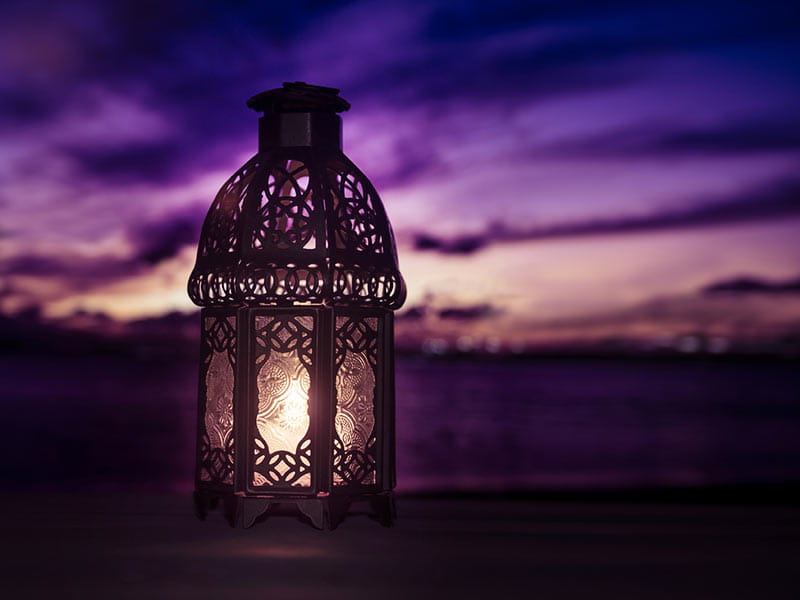Much of the public debate has taken it as a given that vouchers would be a boon for Catholic schools. But since Cleveland's voucher pilot program began in 1995, the 30 small diocesan schools that participated have lost some 2,000 students, according to Mary Lou Toler of the diocese's Office of Catholic Education. "There was no enrollment boost, and no financial boost either," says Toler, who points out that enrolled students simply substituted vouchers for tuition they had previously been paying out of pocket. If anything, the Cleveland program drove children back to free public schools by asking parents to pay 10 to 25 percent of the tuition if they chose private schools.
The big winners of any school voucher program may turn out to be not established private and parochial schools at all, but smaller evangelical Christian, Buddhist and Jewish academies-but perhaps none more so than the hundreds of Islamic schools, like Bokari's Salam School, that have bloomed in the last two decades.
To some extent, the reason is timing. While the Catholic school system is contracting-last year was the first in which more closed than opened--Islamic schools today resemble Catholic parish schools a hundred years ago, feeding on a huge immigrant tide that hasn't yet crested. As Muslims began to arrive in the United States from Asia and Africa in the late 1960s, their first order of business was to build mosques, then Islamic centers to anchor their fledgling communities. Only in the past two decades have they turned their attention to education. "After they saw the impact of public schools on their children, they decided to establish schools, usually using rooms in the Islamic center," says Sabah E. Karam of the Council for Islamic Schools in North America, an accrediting agency.
The major obstacle is money. "We're struggling," says Haider Bhuiyan, principal of the 140-student Islamic Academy of Alabama, close to Birmingham. The $250 annual tuition barely covers half his expenses, and though the better-off families help with donations, they can only do so much. "Most Muslim parents have two home countries. They are supporting themselves and the family back home, almost without exception." Of his 83 school families, Bhuiyan estimates 30 would use vouchers. Many more would move their children from public school if they could afford to pay. "If we could tell them tomorrow there is a new voucher system, we could get 300 kids." At Sunrise Academy in Hilliard, Ohio, there is a waiting list to attend, but a school board member says vouchers could draw enough new students to build a second campus.
Vouchers aren't a panacea, and over time Islamic schools could follow the Catholic schools' path, serving whatever families need them. America's oldest Muslim schools are the Sister Clara Muhammad Schools, a network begun in the 1940s by Nation of Islam founder, Elijah Muhammad, as the University of Islam. When Elijah's son, W.D. Muhammad, led a column of the Nation into orthodox Islam, most of the schools followed, and were re-named after Elijah's wife. After half a century, many of the 70 or so schools exist on little funding and large amounts of activist zeal, mostly in depressed urban areas, serving high percentages of non-Muslims.
At Milwaukee's Sister Clara School, with 96 percent of its students there on vouchers, Christian scripture is as welcome on posters and in assigned work as the Koran. Abdullah translates the Arabic prayers for afternoon prayer time so Christian parents don't get nervous about what their children are being taught. "When I tell the parents that Allah stands for justice and peace," says principal Basimah Abdullah, "they say, 'That's the same God we got."
Whatever their economic value, vouchers may have a more important role: as a conduit for Muslims to enter American society as equal partners. At Bokari's Salam School, girls above third grade must wear hijab, the traditional veil worn by conservative Mulsims women. While Salam has one or two non-Muslim students, most are Muslims from India, Sudan, Malaysia and Indonesia. But while all Islamic and Koranic Studies teachers are Muslim, but nearly a third of the faculty professes to be Christian, 70 percent of the students use vouchers, and Bokari says one of her goals is to develop more contacts in the Milwaukee community at large.
CISNA's Sabah Karam hopes that schools like Salam are Islamic schools' future, and that the voucher system will force other Islamic schools to look outward for help. "Muslim communities aren't wealthy, but they haven't depended on outside sources to establish their schools." Whatever the financial benefits, vouchers will get immigrant Muslims to work with local and federal governments, seek accreditation and join the larger educational world. "Muslims are really concerned with integrating their schools and institutions into the fabric of America," he says. "This is how we want to be viewed by the rest of the citizens of the country."

